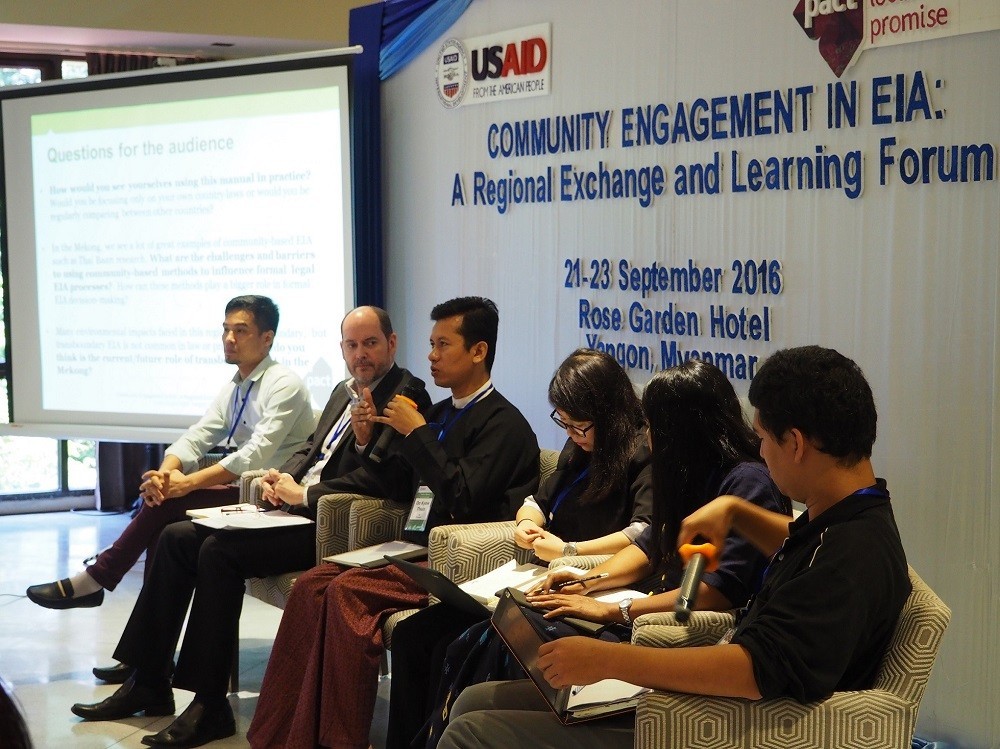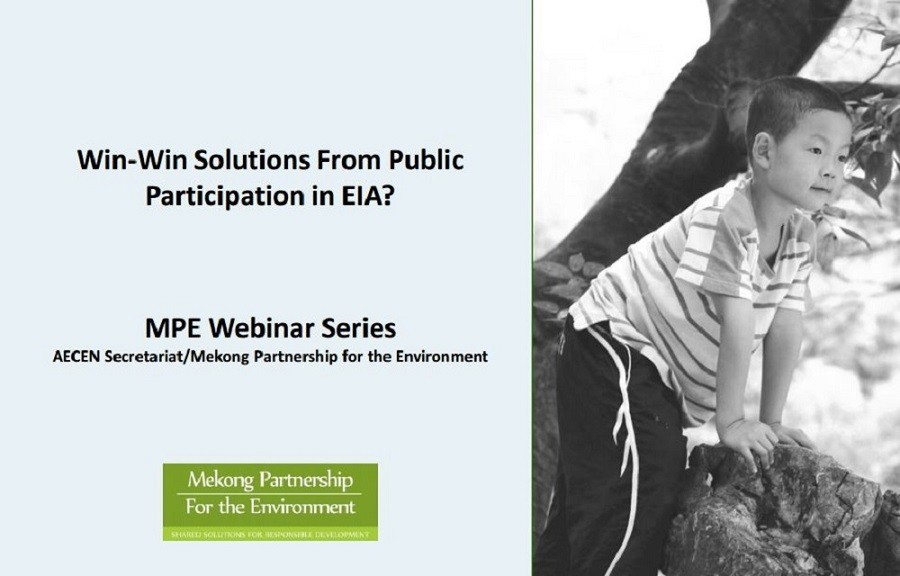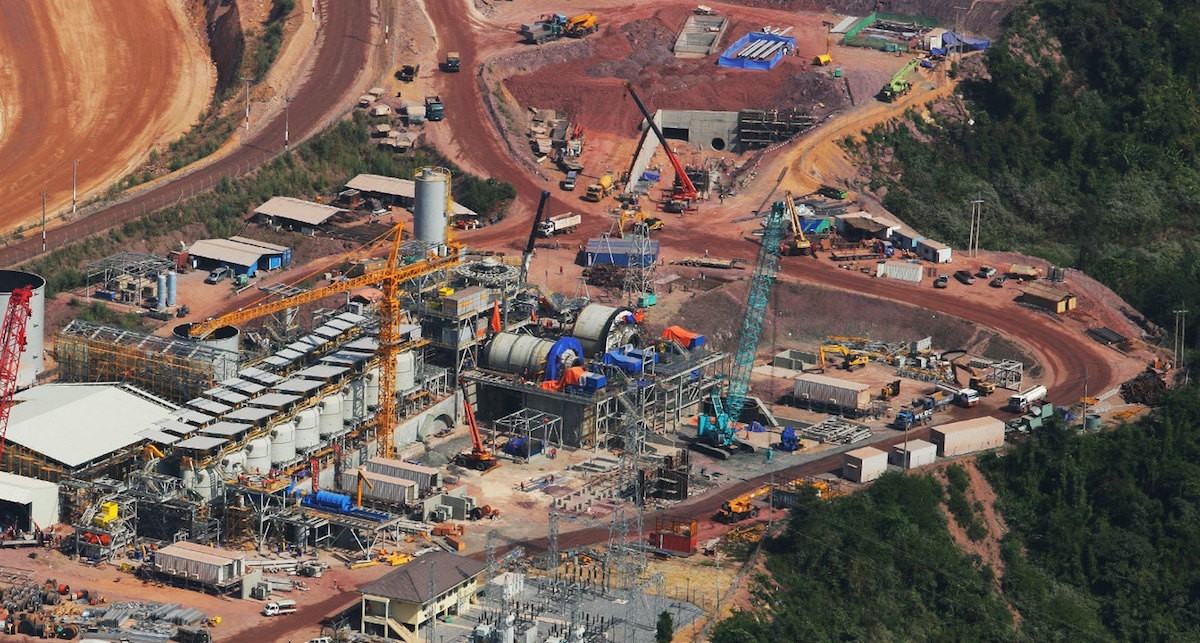Press Release
Yangon, September 23, 2016 —This week, 50 representatives from non-governmental organizations (NGOs) across the Mekong region met in Myanmar to share successes and challenges in effectively involving local communities in environmental impact assessment processes.
At the “Community Engagement in Environmental Impact Assessment: A Regional Exchange and Learning Forum” in Yangon, participants explored approaches to helping communities constructively engage with businesses and government to ensure sustainable and equitable development in the context of increasing infrastructure investment in the region.
“Public participation is at the heart of sustainable development,” said Mr. Warren Harrity, Program Office Director at the U.S. Agency for International Development (USAID) Burma Mission. USAID supported the event through its funding for the Mekong Partnership for the Environment (MPE). “Civil society groups have a growing array of success stories in helping communities take part in environmental impact assessment processes. Learning from these will ultimately benefit projects and people across the region.”
As the region experiences a period of rapid economic growth and increasing investment in infrastructure such as dams and power plants, transparent and inclusive environmental impact assessment processes are crucial in protecting communities and the environment.
“There is often a lot of public concern about the environmental impacts of projects such as power plants, as well as the EIA process.” said Ha Thi Hong Hai of the Vietnamese CSO Green Innovation and Development Centre (Green ID), speaking at the event. “We organize events with communities and local authorities to raise awareness of the potential impacts and the legal aspects of the projects.”
Civil Society Organizations (CSOs) can play an important role in ensuring that community perspectives are meaningfully integrated into those formal environmental impact assessment processes.
“It’s important for civil society to help communities have a voice” said Mr. Menghoin Hok from The NGO Forum on Cambodia. “Communities are the ones most vulnerable and affected by projects. We as CSOs work with and for them to understand their rights, and help them engage with developers, which supports transparency and accountable government, and the rule of law.”
At the forum, participants from Cambodia, Laos, Myanmar, Thailand and Vietnam shared innovative approaches and case studies from across the region of NGOs successfully assisting communities to engage in environmental impact assessment processes for development issues that affect their livelihoods and environment. Participants exchanged practical ideas for incorporating community-based approaches into formal environmental impact assessment processes, examined how to define success and explored how to measure meaningful public participation.
Through dialog and information exchanges at the forum with each other and representatives from the private sector, NGO participants gained an increased understanding of both the environmental impact assessment process and their own role helping communities connect with developers and governments. They also acquired an array of tools, strategies and models to help them achieve their community engagement objectives.
“Most communities affected by investment in Myanmar are indigenous people who don’t know their rights. It was so useful to learn strategies from other countries at the Forum.” said Naw Khin Moe Aye from Promotion of Indigenous and Nature Together (POINT) – a CSO in Myanmar that partners with MPE. “I’m planning for a workshop on EIA next month involving local communities and this event will help me prepare.”
The event was part of MPE’s work supporting constructive engagement among banks, business, government and civil society to facilitate socially and environmentally responsible development in the Mekong region. MPE is facilitating an expert group of regional NGO leaders and government officials to draft Guidelines for Public Participation in environmental impact assessment. The group is holding national consultations throughout the region in October to get feedback on the guidelines.
The USAID-supported regional Mekong Partnership for the Environment project is implemented by the non-governmental organization Pact and its partners.
For more information:
- Contact: Adam Hunt, Media and Communications Director, Mekong Partnership for the Environment: ahunt@internews.org
- Read: USAID’s MPE fact sheet: www.usaid.gov/asia–regional/fact–sheets/mekong–partnership–environment
- Visit: Pact’s MPE information page: http://www.pactworld.org/mpe
Lead Photo: International experts and panelists from Myanmar and across the region discuss how communities can best be involved in Environmental Impact Assessment processes. (Photo: MPE)
See media coverage on Mizzima here





